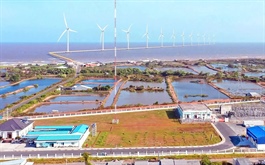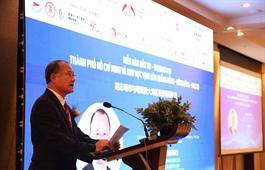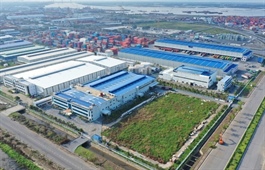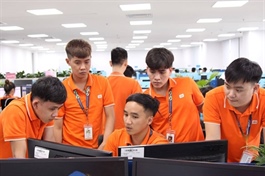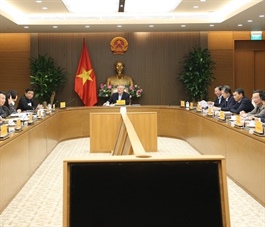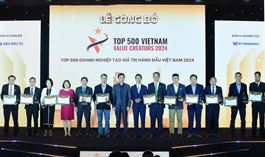Japanese take on consistent approaches
Japanese take on consistent approaches
Japanese investors are eyeing bigger slices of Vietnamese businesses to tap into new opportunities at home and abroad.
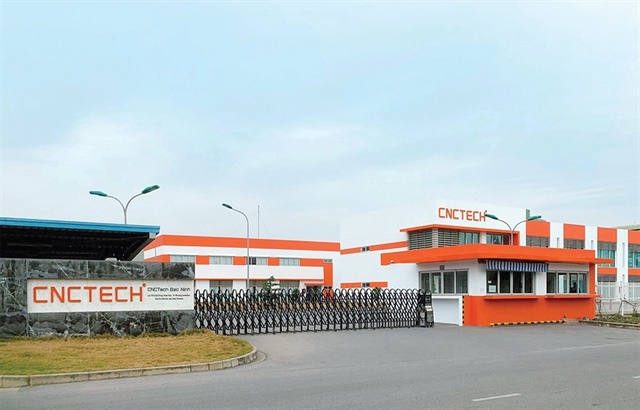
Deals involving Japanese groups are expected to remain steady into next year, photo Le Toan |
Last week, Vietnamese food sourcing platform Kamereo announced that it had wrapped up a $7.8 million investment in its Series B funding round, bringing its total funding to $15 million.
Kamereo attracted the participation of more Japanese investors in this round, including Sumitomo Corporation, Inspire, SMBC Venture Capital, Mitsubishi UFJ Capital, and Reazon Holdings.
Taku Tanaka, CEO and founder of Kamereo, said that Japanese investors, in particular, see significant potential in Vietnam’s food supply market due to its large size and growth prospects, coupled with the lack of a clear market leader.
In addition, there are a number of reasons why Japanese investors are keen on the Vietnamese market. “While the Japanese market is substantial, its growth potential is limited, prompting investors to explore opportunities in developing markets like Vietnam,” Tanaka said. “Unlike local investors, Japanese venture capitalists and corporations still have significant capital reserves to deploy. However, they typically focus on more mature companies, such as those in Series A or later stages, as these provide greater confidence in the market and business viability.”
Since its launch, Kamereo has established a robust food supply chain, spanning from upstream to downstream operations. In Ho Chi Minh City, Tanaka said, it has reached a significant business scale, giving investors greater confidence in the startup’s ability to replicate this successful model in other cities.
Japanese investors are known for their consistent approach and often view funding slowdown in Vietnam as a strategic opportunity. During such periods, they can identify resilient businesses capable of sustaining growth with limited resources and benefit from reduced competition for investment deals, Tanaka added.
“I believe Japanese investors will continue seeking opportunities in Vietnam, especially with businesses that demonstrate sustainable growth in a large, expanding market and offer potential synergies for collaboration,” he said.
Last week, Japanese financial services group SBI Holdings, Japan’s leading financial services company, said it is mulling the acquisition of up to 35 per cent in FPT Smart Cloud Japan. If the deal is realised, SBI Holdings will contribute to FPT’s initiatives to foster AI innovation in Japan.
Elsewhere, in November, Summit Agro International, part of the Sumitomo, announced that it has acquired a 49 per cent stake in Hop Tri Investment Corporation, a Vietnamese crop protection firm. Around the same time, Shizuoka Gas reached an agreement with energy developer Hoan Loc Viet JSC to acquire 25 per cent of My Son-Hoan Loc Viet Solar Energy JSC.
Tamotsu Majima, senior director of RECOF Corporation, said that inflation, interest rates, and foreign exchange fluctuations have only short-term effects on the merger and acquisition (M&A) decisions of Japanese investors.
“What is driving investments from Japan is the difference in growth potential. Vietnam’s economy is growing much faster than Japan’s, which is a mature economy. Japanese companies are eager to invest in high-growth countries like Vietnam, and the interest from Japan in investing in Vietnam remains strong,” he said.
According to Majima, the manufacturing sector is one of the potential targets, as many Japanese companies are trying to shift from China. This trend affirms Vietnam as the production hub for the Southeast Asian countries and the global market. Consumption-related sectors are also attractive due to the growing middle-income population in Vietnam.
“It is difficult to predict the growth of the M&A market because various factors are related. However, we believe the interest of Japanese companies is strong in a wide range of industries in Vietnam, and the transactions between Vietnam and Japan will continue steady growth,” he added.
Fresh figures from the Ministry of Planning and Investment showed that cumulatively as of November 30, Japanese businesses had more than 5,470 valid ventures registered at $77.64 billion in Vietnam, making Japan the third-largest foreign investor.
In the first 11 months of this year, the total newly registered and newly added capital and stake acquisition and capital contributions from Japanese investors in Vietnam stood at $3.6 billion.






